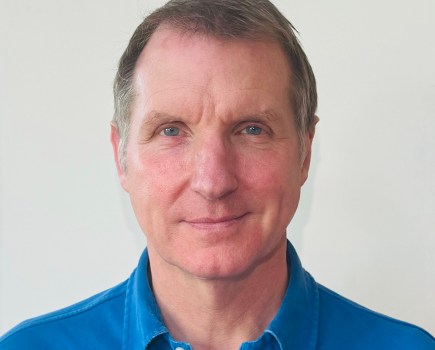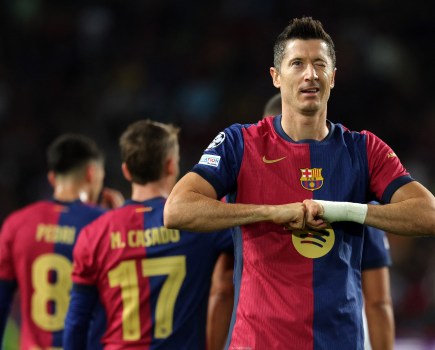Group C
Argentina v Serbia & Montenegro
Kick-off 14:00 (BST)
Discuss this game on our new Forum
South American giants and double World Cup winners Argentina can almost guarantee qualification from the tournament’s so-called ‘Group of Death’ this afternoon, as day eight of the 2006 FIFA World Cup kicks off in Gelsenkirchen.
Having beaten Ivory Coast 2-1 last Saturday in their opening game, Jose Pekerman’s Argentines can ease some of the pressure that could prospectively surround next week’s clash with fellow giants Holland in the final round of group matches by taking all three points today against dark horses Serbia & Montenegro.
It is the first clash between Argentina and the relatively new Blakan state, and is certain to be the last. Montenegro formally declared its independence from Serbia earlier this month following May’s official referendum, meaning that this will be the last major tournament where the two regions will send a combined team. Argentina did meet the former Yugoslavia nine times in competitive matches, however, the most famous of which was the penalty shootout victory by the ‘Albiceleste’ in the quarter-finals of the 1990 World Cup, despite a miss by the legendary Diego Maradona.
Such an eventuality is by no means a formality, however, as the team from the Balkans are sure to provide Argentina with a stern physical and tactical challenge. A lacklustre defeat against fancied Holland last weekend surprised many observers, some of whom had tipped Serbia & Montenegro for progression from Group C at the expense of one of their more celebrated rivals. This afternoon’s game offers the chance of a reprieve for coach Ilija Petkovic’s men, who must secure at least a draw to keep their qualification hopes from fading away.
Tensions running high
Tension has been running high between Petkovic and his players following their opening defeat, with many of the squad publicly criticising their coach’s negative tactics against the Dutch. The media reaction back home has not been any kinder, leading Petkovic to announce on the eve’s of today’s match that he would indeed be changing things around.
“I don’t know why we had to be so defensive from the start and I feel we could have done better with a more adventurous formation,” stated angry Portsmouth winger Ognjen Koroman after the Holland defeat.
“If we had attacked them from the start we could have scored. We might also have lost by several goals, but at least it wouldn’t have been in such a cowardly fashion.”
Atletico Madrid striker Mateja Kezman agreed with his colleague’s statements about Serbia & Montenegro’s negativity. The Balkans qualified for the finals with the most impressive defensive record of any team in the competition, but clearly the players think that this isn’t going to be enough in a group containing three high-class teams.
“Either we start attacking or we are out of the World Cup,” said Kezman, who was controversially substituted in the second-half against Holland when Serbia & Montenegro were supposedly chasing the game.
“Petkovic made the decision to replace me and it is his right, but withdrawing a striker when the team was losing is strange.”
It is clear that squad and staff are far from united, and this is likely to be just as damaging as Petkovic’s negativity as Serbia & Montenegro aim for an upset this afternoon. Further problems have been caused by an injury to the centre-half, Nemanja Vidic of Manchester United, which has ended his tournament prematurely and caused his coach even more of a headache. The coach remains defiant and insists the players remain committed to him, but he also revealed that he would be changing his team’s emphasis from defence to attack today.
“That’s football, that’s life. Sometimes we just have to accept such things,” he said of Vidic’s injury.
“We will start more offensively against Argentina, that’s for sure. We now have no choice, but this decision has been made by me and our situation, not by the press and the players.”
Koroman is likely to be given a starting berth this afternoon, after looking lively when entering as a second-half substitute in the opening match. Nenad Djordjevic is the most likely players to make way, which will result in Igor Duljaj moving to right-back from the right wing. In the continued absence of Vidic, who was actually suspended for the opening match, Sevilla’s Ivica Dragutinovic and Schalke’s Mladen Krstajic are likely to resume their partnership in the centre of defence.
Of the attacking players, much of the focus will be on the attacking midfielder Dejan Stankovic. Stankovic, a skillful, energetic and aggressive presence, is comfortable in all positions across the midfield and will be competing this afternoon against a host of his Internazionale team-mates that feature in the Argentine squad. Kezman is almost certain to continue up front despite his controversial withdrawal last weekend. The main point of debate in the Serbia and Montenegro media this week has been the identity of his strike partner, and specifically whether Petkovic will keep faith with the veteran Savo Milosevic. If he decides against this then Red Star Belgrade’s Nikola Zigic will probably step in. The 6 ft 7 in striker is an excellent target man and can complement the nimble Kezman perfectly.
Pride restored
After the humiliation of being eliminated in the first round at the 2002 World Cup, a tournament they entered as favourites, a significant amount of Argentine national pride was restored last Saturday with a comfortable victory against a dangerous-looking Ivory Coast side in Hamburg.
The 2-1 triumph was easier than the scoreline suggests, and was in many ways the perfect start for Pekerman’s men. A solid overall display – with a goal for each striker and characteristic moments of magic from playmaker Juan Roman Riquelme balanced out with some fine defensive work – was just the start that Argentina’s coach will have wanted. He has openly admitted that his team will improve as the tournament goes on, in terms of fitness and confidence, and stressed this point to the press on Thursday afternoon.
“Now that the first game is out of the way we will improve,” he predicted.
“The opening match is always a difficult one. I was worried about Ivory Coast because like most African teams they are very physical and some of players are slightly below their optimum fitness levels.”
The game in Hamburg will have improved them, and tomorrow’s game will do the same. By the time we play Holland next week we will be exactly where we want to be.”
Pekerman is greatly respected by his players, and his appointment in September 2004 followed his refusal of the top job in 1998. At the time of his appointment he was relatively unknown outside of Argentina, despite winning the World Youth Championship for his country in 1995, 1997 and 2001.
In these victories lie the reasons for his popularity with the squad and his detailed knowledge of them. Pekerman has coached the likes of skipper Juan Pablo Sorin, Pablo Aimar, Riquelme, Javier Saviola and Esteban Cambiasso since a very early age and was a significant influence on their football development. They feel comfortable around him and trust him, making the day-to-day running of the squad far smoother than in previous eras.
Pekerman’s years of experience with the national and youth team set-ups means that he a strict disciple of the Argentine method of attacking football whatever the opposition – such a philosophy has become part of his very make-up and it has been instilled into his players since day one.
The fulcrum of the 2006 version of this footballing ideology is Riquelme, whose skill, dribbling and passing are essential to his team. He is the latest in a long line of distinguished number 10s, all of whom have been central to the fortunes of their respective teams. These legendary players, from Jose Manuel Moreno in the 1940s through to the iconic Diego Maradona, have become part of Argentina’s footballing folklore. If he can lead Argentina to a third World Cup, Riquelme can elevate himself into that exalted group.
Pekerman is spoilt in the sense that he already has a potential successor to Riquelme, Barcelona’s teenaged prodigy Lionel Messi. Messi has become a fledgling superstar following a series of impressive performance for ‘Los Cules’ last season, when he helped to inspire them to the Champions League and Spanish League titles. He missed the last two months of Barcelona’s impressive season with a thigh injury and, despite his recovery and his own declarations that is fully fit, is unlikely to be risked this afternoon by his protective coach. The presence of Riquelme, Saviola and Corinthians’ Carlos Tevez in the squad means that Argentina can be patient with Messi even if fans and the player himself are not.
Pekerman will make one change from the team that beat Ivory Coast, with Luis Gonzalez stepping in to replace Internazionale’s Esteban Cambiasso on the left side of midfield. The defence is settled and strong, having dealt with the bustling presence of Didier Drogba effective last weekend. The pairing of Valencia’s Roberto Ayala with Manchester United’s Gabriel Heinze looks one of the tournament’s best. Heinze looked amazingly sharp in the opening match despite missing almost the whole of last season with a knee injury.
The experienced Ayala, who passed the 100-cap mark earlier in the year, was typically professional in his summing up of this afternoon’s clash.
“I don’t know how Serbia are going to play, but it’s a team that played below its ability in the first game,” he said.
“I know they can play better. Having lost the first game they are sure to be up for this one, but we are confident that we can beat anybody.”
Chelsea striker Hernan Crespo, who along with Saviola scored in the first match, echoed Ayala’s call for caution and concentration.
“Victory in the first game was the culmination of four years work,” he revealed.
“It is not always easy to start the World Cup with a win because everyone is so anxious to do well. We just need to take one step at a time and look to make progress.”
By Mark Robinson
Probable teams:
Argentina: Abbondanzieri; Burdisso, Ayala, Heinze, Sorin; Gonzalez, Mascherano, Maxi Rodriguez, Riquelme; Saviola, Crespo
Serbia & Montenegro: Jevric; Duljaj, Gavranic, Krstajic, Dragutinovic; Nadj, Stankovic, P Djordjevic, Koroman; Kezman, Zigic
Referee: Referee: Massimo Rosetti (Italy)







